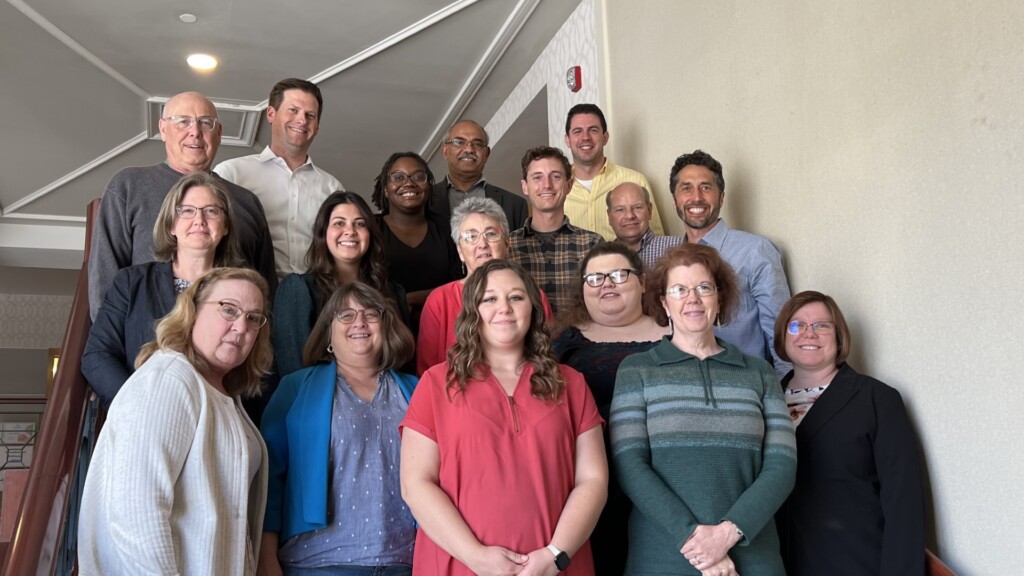PRAIRIE VIEW, Texas (Feb. 22, 2024) – In a groundbreaking revelation, the White House released the Fifth U.S. National Climate Assessment (NCA5), a dynamic exposé designed to enlighten both the public and decision-makers about the evolving landscape of climate change. Dr. Ali Fares, Prairie View A&M University endowed professor of Water Security and Water-Energy-Food-Nexus at the College of Agriculture, Food, and Natural Resources, served as an author for the Southern Great Plains chapter of NCA5.
“For people in the Southern Great Plains, climate change is reshaping our lives, our work, and our recreation,” said Dr. Fares. “We stand at a crossroads, where our response can build healthier, more equitable and more resilient communities.”
The report not only delves into the current state and future risks but plants the seeds of innovation, showcasing pathways for economic growth and community resilience. As a contributing author, Dr. Fares focused on the distinctive challenges faced by Texas, Oklahoma and Kansas. Authors of the assessment included minds from various universities, local governments and federal agencies.
Cultivating Change: Sowing Solutions for the Southern Great Plains
The Southern Great Plains chapter, which includes Texas, Oklahoma and Kansas, doesn’t just outline challenges; it offers a field guide to actionable strategies for individuals, communities and businesses.
“As a faculty member at PVAMU, it’s only natural to co-author a chapter that encompasses our home ground,” said Fares. “This three-year journey was a rich professional experience for me.
“It is an honor to be part of a national team and contribute to this initiative as we face climate change and look for adaptation and mitigation measures for our limited resources and minority communities.”
With climate-related damages totaling $52 billion from 2018 to 2022, the Southern Great Plains continues to experience a growing number of days with two or more inches of rainfall, particularly east of Interstate 35, said Fares. This meteorological deluge results in increased erosion, chemical runoff and hazards to infrastructure, amplifying the need for adaptive strategies.
Projections indicate historically unprecedented temperatures by mid-century, according to the report. Fares emphasized the dangers of rising temperatures, especially for vulnerable populations, such as outdoor workers, children, seniors and individuals with chronic diseases.
He said that many athletes are particularly vulnerable to environment-related injuries because of their exposure to the elements. With an increase in heat-related injuries and fatalities expected, proactive measures by parents, coaches, trainers and facility managers can mitigate health risks for athletes.
Rooted in Action: Texas Takes the Lead in Climate Responsibility
Dr. Fares said that around the country, individuals, communities, businesses and governments are taking action to reduce the emissions of heat-trapping gases, causing the total U.S. emissions to decline. At the same time, the population and economy continued to grow.
Despite the challenges, the Lone Star State emerges as a beacon of hope. Fares advocates for Texas to continue leading the charge in combating climate change.
“Texas is a national leader of renewable sources of electricity generation; it produces about 20% of the state’s total electricity generation,” he said.
In addition to his participation in the NCA5 research, Fares was one of 61 renowned scientists from 51 institutions to develop a National Climate Change Roadmap. The Roadmap, led by Colorado State University, focuses on “working lands,” designating seven priorities for U.S. climate-change research throughout the next decade.
The seven thematic areas include:
- Energy-smart agriculture and technology integration,
- strategic, sustainable, and regenerative agricultural practices, and
- socioeconomic and policy research.
As one of the U.S. key states, Texas has an excellent opportunity to continue its leadership in renewable energy, the new economy, and sustainability efforts,” said Fares.
Flowering Praise from the White House
A letter addressed to Dr. Fares from the White House Office of Science and Technology Policy extends gratitude for the extensive work and dedication, acknowledging substantial progress in climate change research and “solutions for action.
“Your work assessing, summarizing and communicating the latest understanding of climate change resulted in an authoritative and useful report that is already having an impact…You played a critical role in making sure that the report was not only accurate but also credible, understandable and timely.”
The letter also includes a quote from President Joe Biden regarding the unprecedented success of NCA5.
“This report is the most comprehensive assessment on the state of climate change in the history of America. And it matters.”
Cultivating Tomorrow: Nurturing Emission Reduction and Adaptation
Acknowledging the persistent presence of heat-trapping gases, the report stresses that every emission reduction contributes to a brighter tomorrow. Dr. Fares emphasized the need for a dual approach — emission reduction and adaptation — to navigate the risks and impacts of climate change successfully.
The NCA5 is a collective masterpiece crafted by more than 500 authors who volunteered their time alongside almost 300 technical contributors and review editors. The public is encouraged to read the report’s analysis of climate change impacts in Texas. The U.S. Global Change Research Program website grants access to the entire report, as well as useful tools such as an interactive map, a companion podcast, workshops and webinars.
“Climate change affects us all, but it doesn’t affect us all equally,” said Katharine Hayhoe, chief scientist of The Nature Conservancy, lead author of the Second, Third and Fourth NCA, and author of NCA5. “This new assessment provides a more comprehensive understanding of how climate impacts disproportionately affect those who have done the least to cause the problem. These impacts exacerbate social inequities, including racial and gender-based disparities, and they emphasize how climate solutions must also be solutions for justice and equity.
“The good news is we have solutions. We know what we need to do: We need to cut our carbon emissions as much as possible and as soon as possible. We need to invest in nature to take carbon out of the atmosphere as well as providing a host of other benefits for our health and biodiversity. And we need to build resilience to the impacts that are already here today.
“We’re already doing some of each. Now we need to do more, faster. We can’t do this alone, but I know that we can do it together.”
By Kerry Laird
-PVAMU-



